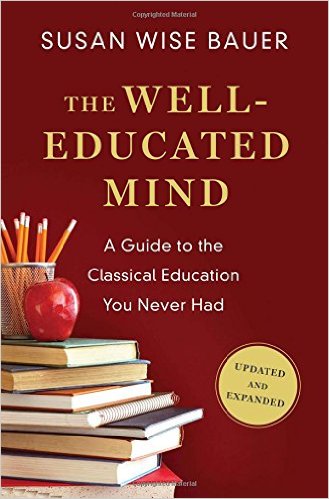Beginning in the Middle Ages, young people who received a formal education did so using a set pattern called the trivium. This “classical education” method was how many of history’s great minds were educated, including America’s Founding Fathers. But beginning in the late 19th century, the classical education methodology was seen as old-fashioned and outdated for our modern, industrial society, and so different methods of education began springing up. Slowly the classical education pattern used for centuries in the West faded away.
But what have we missed out on both individually and as a culture by eschewing a classical education? Could abandoning the trivium for more modern education methods be one of the sources of a decline in the intellectual ability of students, as well as decreasing cultural literacy levels amongst educated adults? If you missed out on a classical education growing up, is it possible to get one even though you’re finished with school?
My guest today on the podcast, Susan Bauer, has the answers to those questions. She’s the author of The Well-Educated Mind: A Guide to the Classical Education You Never Had, as well as The Well-Trained Mind: A Guide to a Classical Education at Home. In today’s show, we discuss what a classical education is, the benefits of it, and how you can create a curriculum for yourself which can accommodate even the busiest of schedules. We also discuss how you can provide your children a classical education even if they go to public schools and how Susan’s Well-Trained Mind Academy can help your middle schoolers and high schoolers get a classical education from classically trained teachers right at home.
Show Highlights
- The three-part pattern of a classical education
- How a classical education differs from the education philosphy used in most American public schools
- How our “opinion culture” is a direct result of deviating from a classical education pattern
- What the “Great Conversation” is
- How a classical education can give your intellectual life more texture and nuance
- Why being able to just read isn’t really literacy
- How to read a book actively using the classical education pattern
- What books to start off with in your own classical education
- Why you should get a reading partner just like the Founding Fathers had
- Why you shouldn’t feel pressured to read every. single. Great Book ever written
- How to treat your personal classical education as a Great Conversation
- How to incorporate the principles of a classical education into your children’s lives
- How to encourage a love of reading in your children’s lives from a young age
- Why you shouldn’t pressure your five-year-old son to start writing even if he can read
- Books to read to your youngsters
- How to foster number literacy in your younger children
- How to continue a classical education for your children when they get to middle school and high school
- And much more!
Resources/Studies/People Mentioned in Podcast
- The Trivium
- The Great Conversation
- Crossing the rubicon
- Mortimer Adler
- How to Read a Book (see our post summarizing the book)
- The Great Books (the complete set is available on Amazon)
- Don Quixote by Miguel De Cervantes
- The Road by Cormac McCarthy
- List of books that Susan recommends in The Well-Educated Mind
- CliffNotes (don’t rely on them; use them to help your understanding)
- The Iliad
- Aristotle’s Prior Analytics
- Our post on conversation as the key to learning and personal transformation
- The Ordinary Parent’s Guide to Teaching Reading
- Trumpet of the Swan audio book
- Well-Trained Mind Academy
I highly recommend picking up a copy of The Well-Educated Mind. Susan makes a compelling case as to why every adult should strive for a classical education, but more importantly, provides a detailed guide on how to do it. And if you’re a parent, be sure to pick up a copy of The Well-Trained Mind. Susan provides a detailed guide on providing your child a classical education through every step of their young life. What I like most about the book is she has a list of recommend resources to check out to teach different concepts. I’ve picked up a few to use with both my kids and plan on picking up more. And if you want to take your child’s classical education up a notch, check out The Well-Trained Mind Academy, where your kids can follow a classically inspired curriculum online with classically trained teachers. Great for parents who homeschool or do home charter schooling.
Listen to the Podcast! (And don’t forget to leave us a review!)

Listen to the episode on a separate page.
Subscribe to the podcast in the media player of your choice.
Read the Transcript
Coming soon!






